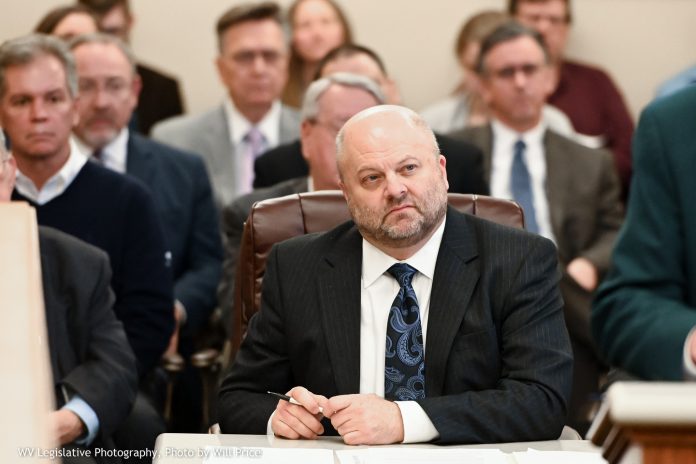The Senate Finance Committee met at 3:00 p.m. today to discuss Originating Bill 4, which creates a 6-year phase out of personal property taxes on manufacturing equipment, machinery, inventory and automobiles.
The bill creates a Special Revenue Account and provides that the Governor and the Legislature are to restore funding to counties and municipalities should the tax be eliminated.
To replace the revenue lost by the tax elimination, the bill calls for an increase from 6 cents per dollar to 6.5 cents per dollar on sales and use taxes.
The bill increases the tax on cigarettes from $1.20 per 20 cigarettes to $2.00 per 20 cigarettes, and raises the tax on other tobacco products from 12% of the wholesale price to 50% of the wholesale price. E-cigarettes and vaping products would also see a tax increase, from 7.5 cents per milliliter to 50% of the wholesale price.
The bill states that all money collected from these taxes are to be deposited into the Special Revenue Account. The Consumer Sales and Use Tax collections are estimated to increase by $116.5 million annually, $88 million of which would come from the tax on tobacco products.
After counsel explained the bill, a representative from the Department of Revenue answered questions from the committee.
The Executive Director of WV Associative Counties also answered questions from the committee and spoke briefly against the bill, stating that the bill takes taxing authority away from counties.
Senator Eric Tarr, R-Putnam, asked the director how this bill would affect counties, then stated that if the tax killed investments and jobs in the state, the counties would likely benefit.
Several members of the committee raised concerns regarding the bill. Senator Douglas E. Facemire, D-Braxton, asked whether this bill would simply give relief to corporations but cause citizens to suffer because of increased taxes.
After much discussion, Senator Ron Stollings, D-Boone, proposed the amendment that $2 million per year retrieved from the tobacco tax be dedicated to tobacco addiction prevention and recovery programs. This amendment was adopted by the committee.
The committee advanced the bill to be reported to the full Senate with recommendation for passage.
The committee also advanced Senate Joint Resolution 9. This is a constitutional amendment that would allow the Legislature to eliminate or lower ad valorem personal property taxes. This however does not permit the Legislature to raise property taxes above their current limits. The resolution eliminates the current constitutional requirement for uniformity of taxation and allows the legislature to set different rates of taxation, assessment or valuation in the state. The resolution will be reported to the full Senate with recommendation for passage.

